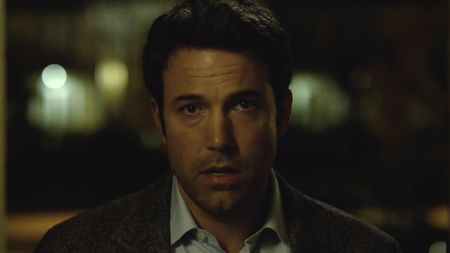Movies
Latest about Movies
-
-

The 20 Best Movies Of 2025, According To CinemaBlend
By Eric Eisenberg Last updated
-

Michael B. Jordan Admitted What Movie He Cries During, And I 100% Did Not See It
By Dirk Libbey Published
-

2026 Marks The 50th Anniversary Of Some Of The Best Movies Ever, Including Six Of My Favorites (And A Lot I Still Need To See)
By Hugh Scott Published
-

How Nicole Kidman And Keith Urban's Divorce Was Reportedly Finalized So Quickly
By Erik Swann Published
-

‘This Is Going To Be Horrible.’ Laura Dern And Her Jurassic Park Co-Stars Were Legit Concerned About How The Movie Would Turn Out While Filming
By Corey Chichizola Published
-

Ben Affleck Is Still Defending Refusing To Wear A Yankees Hat In Gone Girl, And As A Sports Fan, I Get It
By Erik Swann Published
-

Emma Stone Was Asked If She’d Play Miss Piggy In Her And Jennifer Lawrence’s Movie, And Her Answer Was Perfection
By Ryan LaBee Published
-
Explore Movies
Box Office
-
-

First Box Office Weekend Of 2026 Delivers Milestones For Avatar: Fire And Ash And The Housemaid
By Eric Eisenberg Published
-

It's Christmas On Pandora As Avatar: Fire And Ash Has A Massive Second Weekend At The Box Office
By Eric Eisenberg Published
-

Avatar: Fire And Ash Rules The Weekend Box Office (Duh), But Questions Linger About The Future
By Eric Eisenberg Published
-

Five Nights At Freddy's 2 Bombs Hard In Its Second Box Office Weekend As Zootopia 2 Returns To The Top Spot
By Eric Eisenberg Published
-

Five Nights At Freddy's 2 Survives Drubbing From Critics And Easily Wins The Weekend Box Office... But It's Not All Good News
By Eric Eisenberg Published
-

Zootopia 2 Surpasses $550 Million Globally, Running Wild At The Box Office Over Thanksgiving Weekend
By Heidi Venable Published
-

Rejoicify! Wicked: For Good Smashes Records At The Weekend Box Office, But It’s Bad News For The Running Man
By Heidi Venable Published
-

Now You See Me: Now You Don’t Conjures A Win At The Weekend Box Office While The Running Man Lags Behind
By Eric Eisenberg Published
-

Predator: Badlands Is On Its Way To Be The Biggest Predator Movie Ever After Its Awesome Box Office Opening Weekend
By Eric Eisenberg Published
-
Features
-
-

Upcoming Disney Movies: Full List Of Titles And Release Dates
By Dirk Libbey Last updated
-

Upcoming Video Game Movies And Shows I Can’t Wait To See In 2026 And Beyond – Super Mario Galaxy, Mortal Kombat II, And More
By Philip Sledge Last updated
-
 New Issue
New IssueEnroll in Starfleet Academy with the latest issue of SFX
By Ian Berriman Published
-

We're Still A Year Away From Dune: Part Three, But We've Already Learned A Lot About The Film
By Hugh Scott Published
-

Upcoming Book-To-Screen Adaptations: What To Read Before The Movie Or TV Show
By Sarah El-Mahmoud Last updated
-

4 Women Of Color Who Were Snubbed By The 2026 Golden Globe Nominations
By Corey Chichizola Published
-

The Best Free Movies Online And Where To Watch Them
By Jason Wiese Last updated
-

I'm Watching Heated Rivalry, And I'm So Glad There's Finally A Smutty TV Show For Queer Folks
By Corey Chichizola Published
-

I Rewatch The Ref Every Year For Christmas. Why More People Need To Have It On Their Holiday Watch List
By Hugh Scott Published
-
More about Movies
-
-

Emma Stone Was Asked If She’d Play Miss Piggy In Her And Jennifer Lawrence’s Movie, And Her Answer Was Perfection
By Ryan LaBee Published
-

Sydney Sweeney Wore Nothing But A Necklace For Her Brand New Cover
By Heidi Venable Published
-

'I'd Rather Stick A Gun Up My A--' Mickey Rourke Disputes Manager's Claims About GoFundMe Campaign To Avoid Eviction
By Nick Venable Published
-